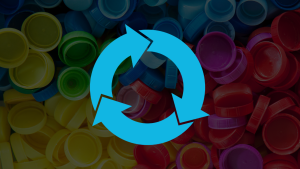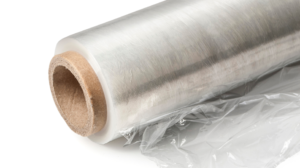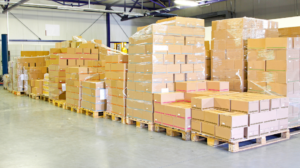Chemical recycling and supercritical steam among latest innovations driving the circular economy for plastics
There is more innovation in plastics recycling currently than for any other material. One of the key trends in this sector is the growing use of pyrolysis and other forms of chemical recycling to reduce materials to their basic elements, and acceptance that this is more than just a flash in the pan as part of the big picture for building a viable, sustainable circular economy.
Other recent developments include the use of supercritical steam to convert plastics, a redesign of 50ml PET bottles for increased recyclability and the first plastic credit exchange program is now on the ground in the U.S.
Honeywell UpCycle Process Technology expands the types of plastics that can be recycled
Honeywell recently announced the commercialization of its UpCycle Process Technology that utilizes molecular conversion, pyrolysis and contaminants management to convert waste plastic into Honeywell Recycled Polymer Feedstock, which is then used to create new plastics. The company says its UpCycle Process technology expands the types of plastics that can be recycled to waste plastic that would otherwise go unrecycled, including coloured, flexible, multi-layered packaging and polystyrene. When used in conjunction with other chemical and mechanical recycling processes – along with improvements to collection and sorting – it has the potential to increase the amount of global plastic waste that can be recycled to 90 percent.
According to Honeywell, recycled plastics produced via UpCycle Process Technology can result in a 57 percent reduction of CO2-equivalent emissions compared with the production of the same amount of virgin plastic from fossil feedstocks.
New APR research working group to focus on impact of chemical recycling
The Association of Plastic Recyclers (APR) has formed a new working group focused on identifying the key steps needed for chemical recycling processes to play an effective role in global efforts to increase the recycling of plastics. Specifically, the APR Chemical Recycling Research Working Group has the goal of clarifying the fundamental steps necessary to enable chemical recycling to most effectively complement traditional methods, and what is needed for it to become a successful component of the overall recycling infrastructure.
“Chemical recycling was developed more than 50 years ago but has recently received renewed scrutiny as well as increased regulatory action as companies look for ways to increase plastics recycling to achieve their consumer recycling commitments,” explains Steve Alexander, APR president & CEO. “As the Voice of Plastics Recycling, APR has a responsibility to clarify for the industry, policymakers and consumers the various aspects of chemical recycling, including issues regarding supply, economics and its impact on the environment.”
The APR Chemical Recycling Research Working Group will be co-chaired by industry veterans Carl Williams, technical associate at Eastman, and Greg Janson, president and CEO of Granite Peak Plastics.
Mura Hydro-PRT supercritical steam technology for plastics recycling to deploy in Japan
Mura Technology and KBR have entered an agreement with Mitsubishi Chemical Corporation to deploy its unique hydrothermal plastics recycling technology, Hydro-PRT, in Japan. Developed by Mura and licensed exclusively by KBR, Hydro-PRT employs a unique patented process utilizing supercritical steam to convert all types of plastics into commercial products that can be used to produce new plastics. According to Mura, its Hydro-PRT technology can recycle all plastic waste, and the company is partnering with large global brands to scale its solutions worldwide, aiming to have capacity to process 1,000,000 tonnes of plastic by 2025.
Evonik and Vita partner on polyurethane mattress recycling process
Evonik, based in Germany, has used its expertise in polyurethane (PU) chemistry to develop an efficient chemical recycling process for converting flexible PU foams back to their original polyol raw material. According to the company, its new hydrolysis-based recycling process has the potential to help achieve circularity in the flexible PU foam industry. As the next phase of development, Evonik is scaling-up trials, which has been further strengthened by its partnership with The Vita Group, a specialist provider of value-added and flexible PU foam products, recycling and rebonding over 30,000 tons of trim each year. To date, the Vita Group has trialled recycled polyols from Evonik’s hydrolysis process in several of its flexible foam applications.
With the potential to recycle the main component materials used in flexible PU foams and PU foam-based mattresses, Evonik says this process offers significantly higher use levels of recycled polyol compared with existing commercialized technologies.



